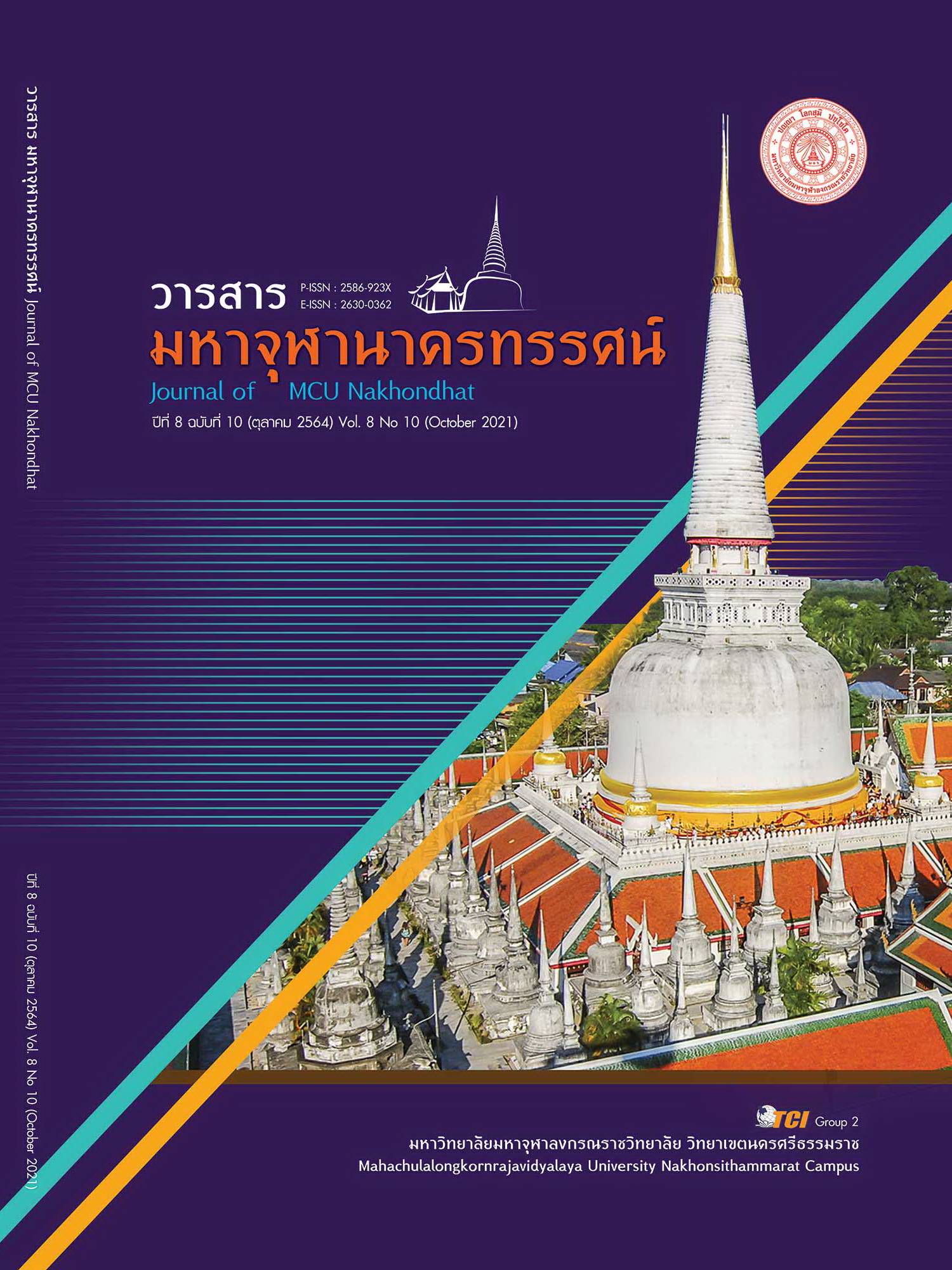THE EFFECT OF SMARTPHONE USAGE IN EARLY CHILDHOOD: NURSING ROLE
Main Article Content
Abstract
Smartphone has now become a communication tool which plays a significant role in daily life. It is easy to access and convenient to carry which is used for communication, photography, and documenting information. It is also internet browsing for watching television, movies, listening to music, and playing games. Moreover, Smartphone is utilized as a tool for raising children and misdirection tool in early childhood. This results in a negative impact where the growth and development of the brain have the highest growth during these important years. Many scholars indicated that using a smartphone can negatively result in physical, mental, emotional and language development. This causes attention deficit hyperactivity disorder (ADHD). ADHD is one of the most common neurobehavioral disorders of childhood who decreased learning ability. Therefore, nurses have a significant role to play in helping, supervising, and preventing the effects of using smart phone in early childhood. These responsibilities are 1) educating their parents about the development and basic needs of early childhood as well as taking care of them with understanding their needs. 2) a need for behavior modification and promoting early childhood development and 3) promoting the development in childhood with Eat –Hug – Play - Telling story and sleep and, 4) setting up environmental and atmospheric situations including family, school, and social factor to promote the early childhood development which in turn positively results in the development of early childhood to have a good learning and quality of life
Article Details
References
จีระพันธุ์ พูลพัฒน์. (2558). การจัดการเรียนการสอนสำหรับเด็กปฐมวัย : ตามแนวคิด ของมอนเตสซอรี่ (พิมพ์ครั้งที่ 2). กรุงเทพมหานคร: จุฬาลงกรณ์มหาวิทยาลัย.
ณัฐพร จันทร์โชคพงษ์. (2564). การนอนกลางวันช่วยพัฒนาความจำในเด็ก. เรียกใช้เมื่อ 5 กุมภาพันธ์ 2564 จาก https://th.theasianparent.com/daytime- sleep-helps-improve-memory-of-child
นวลนภา ธนศักดิ์. (2559). การใช้สมาร์ทโฟนของคนไทย. เรียกใช้เมื่อ 22 มกราคม 2564 จาก http://www.nso.go.th/sites/2014/Pages/ActivityNSO/A24-
ประไพพิศ สิงหเสม และคณะ. (2560). การส่งเสริมโภชนาการในเด็กวัยก่อนเรียน. วารสารเครือข่ายวิทยาลัยพยาบาลและการสาธารณสุขภาคใต้, 4(3), 226-235.
วราลี เดชพุทธวัจน์ และคณะ. (2563). ความสัมพันธ์ระหว่างอายุที่เริ่มใช้สื่ออิเล็กทรอนิกส์ และลักษณะสื่ออิเล็กทรอนิกส์กับพัฒนาการล่าช้าของเด็กอายุ 6 เดือน - 5 ปี. วารสารโรงพยาบาลนครพิงค์, 13(2), 1-19.
ศิราณี อิ่มน้ำขาว และจีระวรรณ ศรีจันทร์ไชย. (2564). บทบาทของพยาบาลในการ เสริมสร้างทักษะ EF (การคิดเชิงบริหารและจัดการชีวิต) ในเด็กปฐมวัย. วารสาร มหาจุฬา นา ครทรรศน์, 8(1), 229-244.
ศุภศิลป์ กุลจิตต์เจือวงศ์. (2556). โทรศัพท์มือถืออัจฉริยะ ทศวรรษใหม่ของนวัตกรรม การสื่อสารแห่งอนาคต. วารสารวิชาการ Veridian E-Journal, 6(2), 132-142.
สถาบันราชานุกูล กรมสุขภาพจิต. (2559). คู่มือการจัดกิจกรรมการเสริมสร้างความ ผูกพันทางอารมณ์สำหรับพ่อแม่หรือผู้เลี้ยงดูเด็กวัยแรกเกิด 5 ปีด้วย "กิน กอด เล่น เล่า". (พิมพ์ครั้งที่ 2 ). กรุงเทพมหานคร: โรงพิมพ์ชุมนุมสหกรณ์การเกษตรแห่งประเทศไทย จำกัด.
สมัย ศิริทองถาวร. (2560). กรมสุขภาพจิต เตือนปล่อยเด็กเล่นแท็บเล็ต เสี่ยง "ไฮเปอร์เทียม. เรียกใช้เมื่อ 5 กุมภาพันธ์ 2564 จาก https://www. news.thaipbs.or.th/content /262927
สำนักงานสถิติแห่งชาติ. (2561). สำรวจการมีการใช้เทคโนโลยีสารสนเทศและการสื่อสารในครัวเรือน พ.ศ. 2561. เรียกใช้เมื่อ 22 มกราคม 2564 จาก http://www.stiic.sti.or. th/stat/ind-it/it-t012/
สิริกานต์ แก่นเพชร. (2559). การเสพติดสมาร์ทโฟนของนักศึกษาระดับอุดมศึกษา จังหวัดเชียงใหม่. ใน ปริญญาศิลปะศาสตร์มหาบัณฑิต สาขาวิชาการสื่อสารดิจิทัล. มหาวิทยาลัยแม่โจ้.
โสภณา จิรวงศ์นุสรณ์ และคณะ. (2561). อันตรายที่แฝงมากับโทรศัพท์มือถือ. วารสารวิจัยราชภัฏพระนคร สาขาวิทยาศาสตร์และเทคโนโลยี, 13(1), 164-177.
อภิรพี เศรษฐรักษ์ ตันเจริญวงศ์และคณะ. (2561). พฤติกรรมการใช้หน้าจอของเด็กไทยวัย 0 – 3 ปี ในเขตกรุงเทพมหานคร. วารสารวิชาการนวัตกรรมสื่อสารสังคม, 6(2), 61-69.
British Broadcasting Corporation News. (2561). เทคโนโลยี : เล่นมือถือเกินวันละ 7 ชั่วโมง อาจทำให้เปลือกสมองเด็กบางก่อนวัยอันควร. เรียกใช้เมื่อ 5 กุมภาพันธ์ 2564 จาก https://www.bbc.com/thai/features-46709708
Napton, S. (2015). Using iPad to calm children may harm their development. Retrieved April 18, 2016, from http:// www.telegraph.co.uk/news/science/ science - news/11382711/Using-iPads-to-pacify-childrenmay-harm-their- development-say-scientists.html
Thomé, e. et al. (2011). Mobile phone use andstress, sleep disturbances, and symptoms of depression among young adults--a prospective cohort study. Retrieved February 5, 2564 จาก https://doi.org/10.1186/1471-2458-11-66


